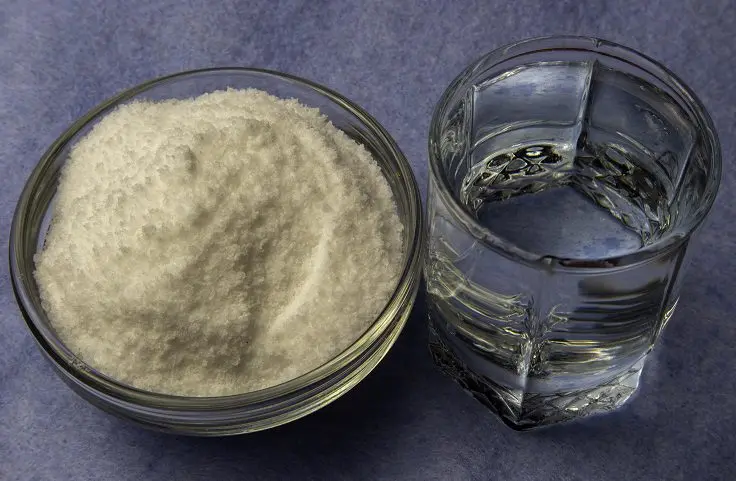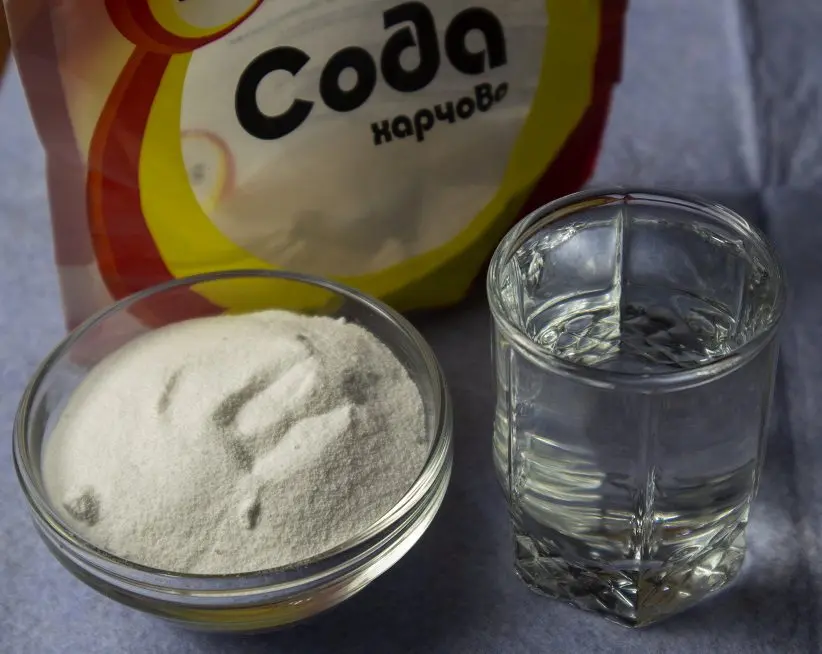Contents
In many old recipes, salt is added to the mash before distillation, but why this is necessary is not explained. Some modern experimental distillers go even further – they add salt to moonshine before re-distillation and even sprinkle soda, supposedly salt and soda can improve the taste of drinks, and anything from sugar mash to cognac spirits. It’s time to find out if this is true.
Salt in the wash
The most common theory is that adding non-iodized table salt to mash weakens the bond of water with substances dissolved in it and increases the boiling point of the liquid. As a result, alcohol begins to evaporate faster and comes out cleaner (with a minimum amount of impurities).
Indeed, the boiling point of salt solutions is the higher, the richer the solution is with salt, but the problem is that the temperature increase is insignificant (at a pressure of 760 mm Hg):
| Percentage of salt in solution (%) | Boiling point (°C) |
| 1 | 100,21 |
| 2 | 100,42 |
| 6 | 101,34 |
| 15 | 103,83 |
| 18 | 104,79 |
| 21 | 106,16 |
| 24 | 107,27 |
| 27 | 108,43 |
| 29,5 | 109,25 |
It turns out that in order to raise the boiling point by at least 1 degree, you need to add 60 g of salt per 1 liter of mash – an exorbitant amount for the sake of an insignificant increase in temperature.
Regarding the weakening of the bonds of salted water with other substances, this is also true, and in chemistry it is called “salting out”, but other substances, including harmful impurities, will be easier to separate with alcohol.
As a result, they will fly more actively in the selection of substances from the “heads” and “tails”. Yes, the smell and taste of moonshine may change, but in terms of cleaning, the drink will become worse.
Another version says that the salt in the mash promotes the coagulation of proteins and yeast, making the sediment more dense. It should be borne in mind here that in most mashes the protein content is low, and the correct cleaning and degassing technology is guaranteed to remove almost all the yeast sediment in the mash.
Salt in moonshine (before distillation)
Adding salt to moonshine can only slightly increase the boiling point and weaken the bonds of water with other substances. As in the previous case, this will do more harm than good. At best, it will not affect the drink in any way.
The composition of the mash is different, so it is not clear how much salt to add to the mash (moonshine) before distillation. The range of values practicing this method of moonshiners: from 1/3 to 1 tablespoon per 1 liter of mash, without adjustment for the characteristics of the raw materials and the purpose of the application.

Conclusion: there is no point in adding salt to moonshine or home brew before distillation, as this can only worsen the quality of moonshine due to the ingress of more harmful impurities into the selection.
Cleaning moonshine with salt
The most interesting moment. In fact, salt does not react with substances in moonshine, so such cleaning by itself is useless. However, table salt softens the hardness of the water, as a result, moonshine seems better. The composition of moonshine does not change, but it feels tastier due to the corrected water.
It is advisable to add salt to moonshine (after distillation) only if the water that was used for mash and dilution was initially very hard. The amount of salt should be selected, guided by taste, and optimally – always use bottled water, then such problems will not arise.
Attention! The high salt content in mash and moonshine increases the corrosivity of any metal (including stainless steel), so the distillation cube and moonshine will become unusable much faster.
Soda in mash
Due to the creation of an alkaline environment, soda somewhat reduces the acidity of the mash, but at the same time a soapy aftertaste may appear in the moonshine.
It is advisable to add soda (no more than 1 teaspoon per 10 liters) only to slightly sour mash. It is better to use chalk (in the same proportions, pre-crushed), which has less effect on the organoleptic properties of the distillate than soda. Completely sour mash cannot be saved in any case.
Attention! If the salt is neutral, then the soda interacts with the substances in the mash, so the taste and aroma of moonshine will definitely change even with a small amount of it.
Baking soda in moonshine
Soda can be added to the sugar moonshine of the first distillation for cleaning. This is not to say that this is the best method, since charcoal or coconut activated carbon is much more effective, but such cleaning is still possible.

How to properly clean moonshine with soda is described in a separate article. After all the procedures, I recommend doing a second distillation.
Conclusion: baking soda in mash lowers acidity, but gives a soapy taste, you can also clean sugar moonshine with soda, but this is far from the best method to improve the quality of the drink.
PS If my arguments seemed unconvincing and one of the readers wants to check everything on their own experience, it is important to remember that only non-iodized salt and ordinary baking soda (not caustic) can be added to moonshine and mash.









